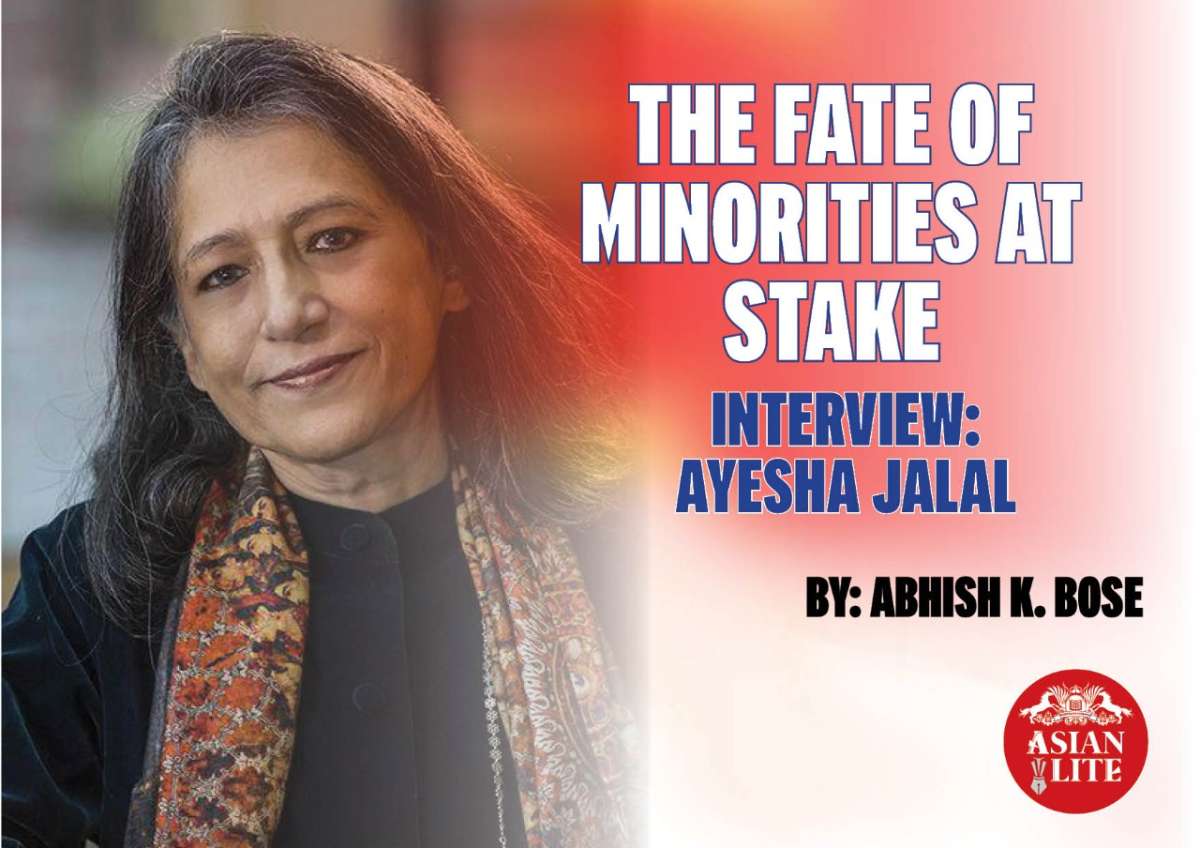Alarming level of intolerance against political and religious minorities are comparable to what has been witnessed in Pakistan, observes Ayesha Jalal. INTERVIEW BY ABHISH K. BOSE
Professor Ayesha Jalal is the Mary Richardson Professor of History and Director Centre for South Asian and Indian Ocean studies at Tuft University. After majoring in history and politics at Wellesley College, she pursued her doctorate in history from the University of Cambridge. She has been a fellow at Trinity College, (1980-84), Leverhulme Fellow at the Centre of South Asian Studies, Cambridge ( 1984-1987), Fellow of the Woodrow Wilson Centre for International Scholars at Washington DC, ( 1985-86), and Academy Scholar at the Harvard Academy of International and Area Studies ( 1988 – 90). From 1998 to 2003 she was a McArthur fellow.
A native of Lahore in Pakistan her books include “The Sole Spokesman: Jinnah, the Muslim League and the demand for Pakistan; Democracy and Authoritarianism in South Asia: A comparative historical perspective; The State of Martial rule: The origins of Pakistan’s political economy of defence. She has co-authored ‘ Modern South Asia: History, culture and Political economy with Sugatha Bose, Her recent book is ‘Partisans of Allah: Jihad in South Asia’. In an interview with Asian Lite’s Abhish K. Bose, she discusses the growing intolerance against religious minorities and the Taliban’s ascending power in Afghanistan.
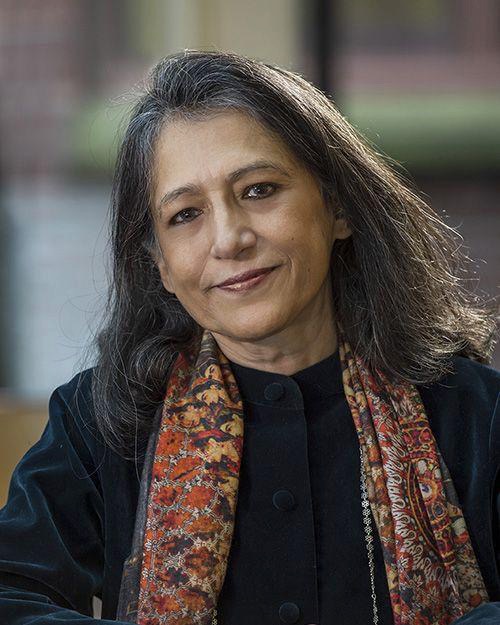
ABHISH K. BOSE: What is your take on Indian secularism and the future of minorities in India and Pakistan?
AYESHA JALAL: Recent political developments in India have undermined the constitutional principle of neutrality towards different religious communities, which had been the cornerstone of the post-colonial Indian state’s commitment to maintaining a secular and democratic polity. Efforts to create a Hindu Rashtra and alarming displays of intolerance towards the cultural and political rights of religious minorities are comparable to what has been witnessed in Pakistan. But there are important differences between the two countries. India’s geographical size and formally democratic nature contrast sharply with military authoritarian Pakistan, a truncated state that lost its majority population in 1971 and, unlike India’s much-advertised secular credentials, claims to be an Islamic republic. Given the absence of military dominance in India, the relatively robust Indian federal configuration’s capacity to counter insular and exclusionary religiopolitical rhetoric can never be ruled out.
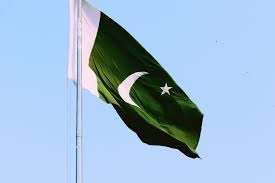
ABHISH K. BOSE: Though India and Pakistan secured independence and became separate countries, Pakistan immediately fell in due course into the hands of the military, whereas India managed to remain as a secular democracy. What are the reasons for the contrasting routes the two countries took? What are the factors that sustained the democratic culture and vitality of India, even as democracy floundered all around in its neighbourhoods?
AYESHA JALAL: I have dealt with the question of India’s and Pakistan’s divergent political trajectories at some length in my book, Democracy and Authoritarianism in South Asia (1995). India inherited the British colonial state’s unitary centre and the international personality of British India while Pakistan had to create a wholly new centre from scratch over its territories and was cast into the role of a seceding state. Severely strapped for funds and with serious doubts about its ability to survive, Pakistan became entangled with Cold War politics with detrimental effects on relations between the new centre and the constituent units. India under Nehru, on the other hand, adopted non-alignment as its policy, which together with support for the Congress in the various regions helped to confirm the democratic process insofar as holding regular elections on five-yearly intervals was concerned.
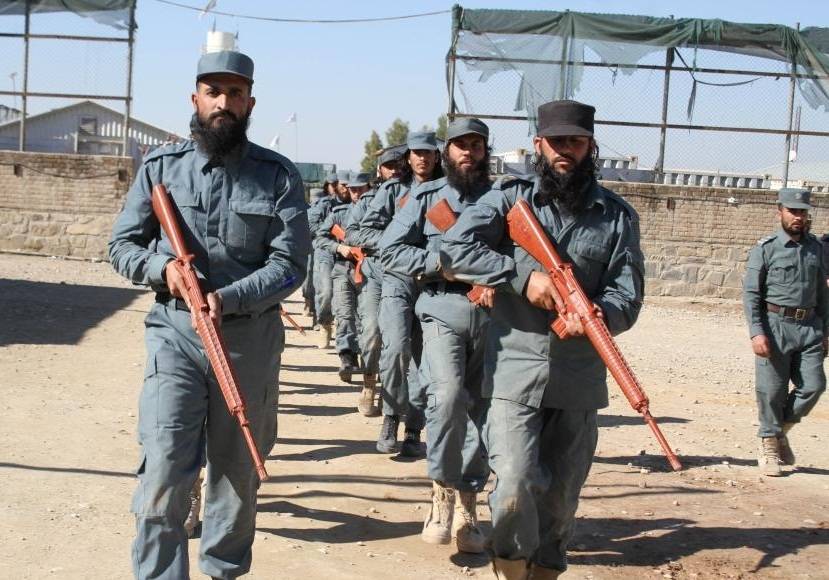
ABHISH K. BOSE: With the US withdrawal from Afghanistan, the country comes under the rule of the Taliban. In the meantime, China is trying to invest in infrastructure -especially roads- in Afghanistan as top Chinese officials are in discussions with the Taliban leadership. The role played by China in giving financial aid to Sri Lanka also should be suspiciously perceived as when Sri Lanka failed to pay back the loans they took the Hambangotta port for lease for the next 99 years. Would you explain the hidden strategic agenda behind Chinese moves in these two countries and South Asia in general? Are they trying to repeat the role donned by the US in South Asia?
AYESHA JALAL: The notion of a Chinese conspiracy to ensnare Sri Lanka and now Afghanistan is more perception and suspicion than a proven fact based on solid evidence. It also underplays the role of the political leadership in Sri Lanka in accepting terms detrimental to the country’s economy and then failing to take the right steps to ensure their ability to service the debt. The Chinese are not interested in donning the American role. They are interested in extending their economic partnership to countries that are willing, not create new structures of dependency. Even if they are, it is up to the countries of South Asia inviting Chinese investments to ensure that they are not signing off on loans that they cannot afford to pay back.
ABHISH K. BOSE: Tehrik-E-Taliban in Afghanistan claims that since the arrival of the Taliban government to power in Afghan, they can influence the Talibanisation of Pakistan. How realistic is this, and what are its possible ramifications for countries such as India?
AYESHA JALAL: It depends on what you mean by the “Talibanisation” of Pakistan. If you are pointing to the possibility of a Taliban takeover of the Pakistan state and its institutions, the idea must be dismissed as unrealistic. This does not mean that Pakistani Taliban and their supporters are not aspiring to emulate the success of their Afghan counterparts. But they too will face stiff resistance in any effort to impose their preferred ideas on the people of Pakistan.
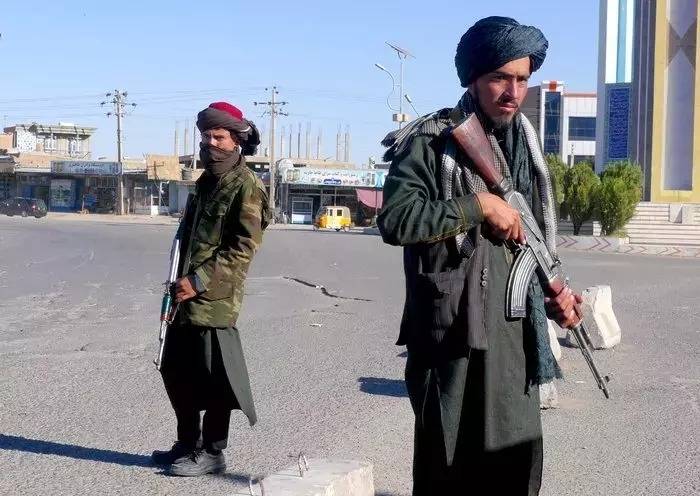
ABHISH K. BOSE: How serious is the growth of Muslim radicalisation in India? How real is the danger that global Islamic terror will intrude into India if the present anti-Muslim sentiment gains ground? What is the harm this does to the image of India in the global village?
AYESHA JALAL: The real danger in India is the toxic nature of the political discourse that incites and enrages, preventing any sort of informed and reasoned debate. More than Muslim “radicalisation”, Indians need to do some soul-searching about worrying signs of radicalisation among a segment of the majority community. If wanton acts against Indian Muslims continue in India, adverse reactions of some sort or the other are unavoidable. Those orchestrating the politics of hate need to consider how far they want to push their Muslim minority into a corner without eroding the appeal of India’s well-crafted image of itself as the world’s largest democracy that is also secular and peaceful, something that has already begun to happen. The choice is India’s to make.

